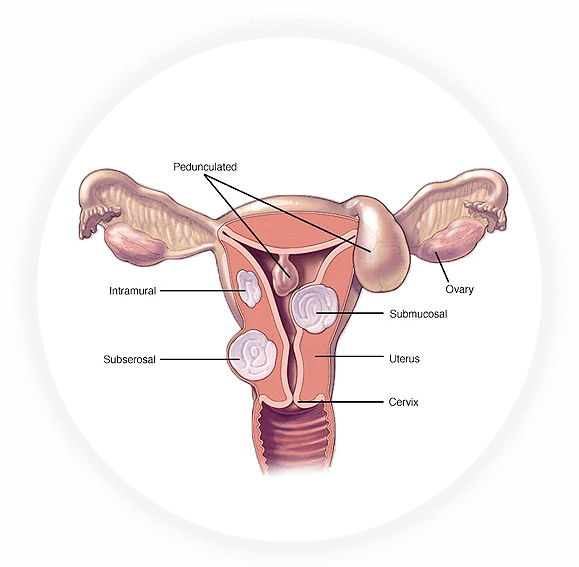Uterine Fibroids Specialist in Miramar, Florida
Dr. Bratter has many years of experience treating uterine fibroids and the associated symptoms.
Fibroids are noncancerous growths that develop in the uterus. Fibroids are extremely common, affecting approximately 40% of women.
Common symptoms associated with fibroids are:
- Heavy menstrual bleeding
- Pelvic pressure or pain
- Frequent urination
- Difficulty emptying the bladder
- Constipation
- Backache or leg pains
Not all fibroids require treatment or surgery. Treatment options vary depending on symptoms, size and location.

Did you know
The size of fibroids can vary from undetectable minute seedlings to bulky masses that can enlarge and distort the uterus. Fibroids can be single or occur in multiples. They can occur in several places throughout the uterus. The associated symptoms are not necessarily dependent on the size or location.

It is a very common occurrence for most women to have Uterine Fibroids during their lifetimes.
Because some women have no symptoms, many women have no idea that they even have fibroids. A pelvic exam or ultrasound may help detect fibroids.
Uterine Fibroid
Symptoms
Many times women who have fibroids do not experience any symptoms. For patients that do have symptoms, they are not necessarily affected by the number, size, or location of the fibroids. Common symptoms of uterine fibroids include:
- Uterine Fibroids can cause backache or leg pains
- Uterine Fibroids can cause Constipation
- Uterine Fibroids can cause difficulty emptying the bladder
- Uterine Fibroids can cause frequent urination
- Uterine Fibroids can cause pelvic pressure or pain
- Uterine Fibroids can cause menstrual periods lasting more than a week
- Uterine Fibroids can cause heavy menstrual bleeding
ITS RARE
In rare cases a uterine fibroid can outgrow its own blood supply and will slowly begin to die. This is called degeneration, and can lead to acute pain.
It is also rare, but possible for a fibroid to become cancerous. This occurs in less than 1/1000 cases.


